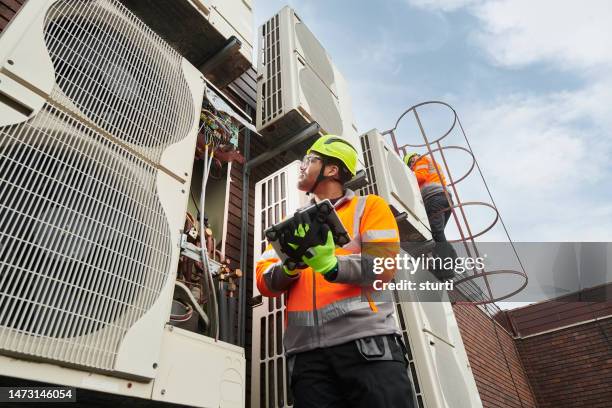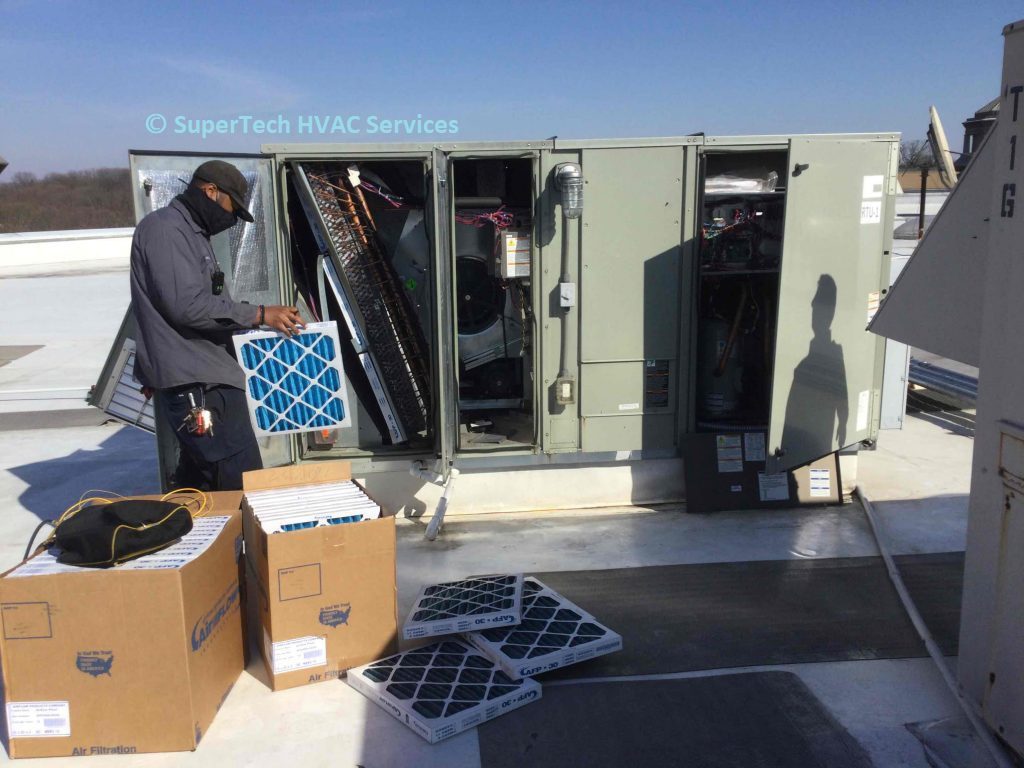Why ductless mini splits Outperform Traditional HVAC Setups
Why ductless mini splits Outperform Traditional HVAC Setups
Blog Article
Selecting Between a Warm Pump and Furnace: Key Factors To Consider for Your HVAC Demands
When assessing heating options for cooling and heating requires, the decision between a heatpump and a heating system can be complex. Each system offers distinct benefits tailored to details environments and power performance goals. Comprehending these distinctions is crucial for making an educated selection. Key factors such as installment expenses and environmental influence additionally complicate the selection process. Which alternative really straightens with one's comfort and sustainability choices? The complying with areas will discover these considerations thoroughly.
Comprehending Warm Pumps: Just How They Function and Their Benefits
While lots of property owners take into consideration various home heating options, recognizing exactly how heatpump feature and their benefits can considerably influence their decision. Warmth pumps operate by moving heat rather than creating it. In the winter months, they draw out warmth from the outside air or ground and transfer it inside, while in the summer, they reverse this process, cooling down the home by eliminating warmth outside. This double functionality makes them flexible for year-round environment control.One of the primary advantages of heat pumps is their power performance. They utilize considerably less electrical energy compared to standard heater, potentially leading to reduced utility costs (ductless mini splits). Furthermore, warmth pumps have a smaller carbon impact, making them an eco-friendly option. They also require less maintenance than traditional systems, adding to long-lasting expense savings. In general, comprehending the auto mechanics and advantages of heatpump can help house owners make educated choices regarding their home heating and cooling down requirements
Discovering Furnaces: Kinds, Operation, and Benefits
Heating systems can be found in numerous kinds, including gas, electric, and oil models, each with distinct functional systems. Understanding these differences is vital, as they influence efficiency and home heating efficiency. Furthermore, furnaces offer numerous advantages, such as consistent heat result and integrity in cooler climates.
Types of Heaters
Heating unit can differ significantly in design and operation, with furnaces being a preferred option amongst home owners. There are a number of kinds of heaters, each making use of different fuel resources and innovations. Gas heaters prevail, leveraging gas to generate warm successfully. Electric heating systems, on the various other hand, utilize electrical resistance to produce heat, commonly favored for their uncomplicated setup. Oil heaters, while less typical, work in locations with limited gas accessibility (furnace replacement). Additionally, condensing furnaces maximize power efficiency by catching and recycling exhaust gases. Each kind operates with a system of warmth exchangers and ductwork to distribute warm air throughout a home. Recognizing the distinctions between these heater kinds is vital for educated heating and cooling choices
Advantages of Furnaces
For house owners looking for reliable warmth during chilly months, the benefits of furnaces are significant. Heating systems give consistent heating, making sure also temperature levels throughout the home. They are particularly effective in extreme chilly, often outshining heat pumps in freezing problems. Various types, consisting of gas, electrical, and oil heating systems, provide adaptability to fulfill diverse demands and preferences.Furnaces likewise tend to have reduced preliminary setup expenses compared to warmth pumps, making them a more accessible choice for many. Their durable style contributes to a longer life-span, with many devices lasting over 15 years with proper upkeep. Furthermore, modern heaters are usually equipped with innovative innovation for improved effectiveness, which can bring about reduced energy costs. Generally, furnaces stay a reliable selection for reliable home heating.

Energy Performance: Comparing Warmth Pumps and Furnaces
When contrasting power effectiveness between heatpump and furnaces, the Seasonal Power Performance Ratio (SEER) plays a necessary function in determining efficiency. Furthermore, an operational expense evaluation discloses the long-term financial ramifications of each system. Recognizing these variables can lead property owners in making notified decisions concerning their heating services.
Seasonal Energy Performance Ratio
Energy performance plays a necessary function in the decision-making process between heatpump and heating systems, especially when thinking about the Seasonal Energy Efficiency Ratio (SEER) This statistics actions the cooling performance of warmth pumps over a whole cooling season, offering a standard method to assess efficiency. Higher SEER ratings suggest higher energy effectiveness, translating to reduced power usage and reduced utility bills. On the other hand, heating systems are typically examined utilizing the Yearly Gas Usage Effectiveness (AFUE) rating, which shows home heating performance. When contrasting these 2 systems, property owners must prioritize SEER scores for heatpump, as they directly influence general energy savings and ecological sustainability. A detailed understanding of SEER can notably influence the lasting satisfaction and cost-effectiveness of the picked cooling and heating option.
Operational Expense Evaluation
Comprehending the operational expenses related to heatpump and heating systems is vital for house owners reviewing their alternatives. Warmth pumps commonly supply greater energy performance, converting electrical power into warmth with marginal waste. This leads to lower regular monthly utility bills, particularly in modest environments. Alternatively, conventional furnaces, especially gas models, may have lower ahead of time expenses yet can incur higher functional costs gradually because of sustain rates and efficiency ratings.Moreover, heatpump can operate as both heating and cooling down systems, potentially lowering the demand for different a/c units. While initial financial investments for heatpump may be higher, their long-term cost savings in energy effectiveness can make them a more cost-effective option for several families. Careful analysis of neighborhood power rates is vital to identify the click this link most effective choice.
Setup Prices: What to Expect for every Furnace
Installment expenses for heater can vary substantially in between warmth pumps and heating systems, affecting house owners' choices. Heat pumps typically have greater in advance installation costs, typically varying from $3,500 to $8,000, relying on the system dimension and intricacy of installation. This includes the outside unit, interior handling system, and required ductwork alterations. Alternatively, heating systems often tend to have lower preliminary expenses, averaging between $2,500 and $6,000, which can be appealing for budget-conscious home owners. Nevertheless, installment expenses can raise if considerable ductwork is required.Moreover, the option of gas kind for heaters-- natural gas, lp, or electric-- can also impact setup costs. While heat pumps use power effectiveness, their first financial investment may deter some purchasers. Inevitably, assessing setup costs alongside long-lasting financial savings and effectiveness will help house owners in making notified choices about their heating unit.
Environment Considerations: Which System Executes Much Better in Your Area
Exactly how do climate conditions affect the effectiveness of heating unit? The performance of heatpump and furnaces can differ substantially relying on the neighborhood climate. In moderate climates, heat pumps stand out by efficiently transferring warmth from the outside air, making them an energy-saving option. Nonetheless, their efficiency reduces in exceptionally cold temperature levels, where they might battle to draw out adequate heat. Conversely, furnaces, particularly gas models, give dependable and constant warm no matter outdoor conditions, making them better in cooler regions.In locations that experience milder wintertimes, warm pumps can run effectively year-round, supplying both home heating and air conditioning. On the other hand, regions with harsh winters often benefit from the toughness of furnaces. Ultimately, understanding the neighborhood environment is important when making a decision in between a heatpump and a heating system, as it directly impacts their functional performance and general efficiency.
Upkeep Requirements: Long-Term Take Care Of Warmth Pumps vs. Furnaces
While both heatpump and heaters call for normal upkeep to assure peak performance, their specific requirements and treatment routines differ substantially. Heaters commonly require less frequent interest, with annual evaluations being adequate to look for gas leaks, clean filters, and assess total functionality. Their simpler layout usually allows for simple repairs.In comparison, heatpump require biannual upkeep because of their double function in home heating and cooling. This consists of cleaning coils, checking refrigerant degrees, and ensuring that both the exterior and indoor units work at their finest. In addition, heatpump maintenance typically entails more elaborate elements, making expert servicing essential.Neglecting upkeep can bring about reduced efficiency and boosted energy prices for both systems. Eventually, house owners ought to think about these lasting care needs when selecting between a heat pump and a heating system, as positive upkeep can expand the life-span and efficiency of either system significantly.
Environmental Effect: Picking a Lasting Home Heating Choice
The environmental effect of heating unit is an important examination for house owners looking for sustainable choices. Heatpump heat pump replacement ooltewah tn are usually extra energy-efficient than conventional heaters, as they transfer warmth instead of create it, considerably decreasing carbon emissions. By utilizing renewable resource sources, such as air-source or geothermal her explanation heat pumps, homeowners can even more reduce their ecological footprint.On the other hand, gas heaters emit greenhouse gases and add to air contamination, though they commonly supply higher heat result. Improvements in innovation have led to the growth of high-efficiency furnaces that minimize emissions.Ultimately, choosing a heating system entails considering effectiveness against ecological impact. Homeowners are motivated to mirror on regional power sources and incentives for sustainable systems, guaranteeing an option that lines up with both personal convenience and environmental duty. The decision influences not only prompt comfort however also long-lasting sustainability and ecological health.
Regularly Asked Questions
The Length Of Time Do Warm Pumps and Furnaces Generally Last?
The life-span of heatpump commonly ranges from 15 to twenty years, while furnaces can last in between 15 to three decades. Normal maintenance substantially influences their durability and effectiveness in providing heating options.
Can I Use a Heatpump in Very Cold Climates?
Heat pumps can operate in very cool environments, but their effectiveness reduces as temperature levels drop. In such conditions, supplemental heating resources might be required to keep comfortable indoor temperature levels and guarantee peak efficiency.

What Is the Sound Level of Heat Pumps Versus Furnaces?
The sound degrees of heatpump and heaters differ considerably. Generally, warmth pumps operate even more quietly than typical heating systems, making them more suitable for those delicate to seem, while furnaces might produce louder functional noises throughout home heating cycles.
Are Warm Pumps Suitable for Both Cooling And Heating?
Warmth pumps are undoubtedly suitable for both cooling and heating (heat pump service). They operate by transferring warm, providing reliable temperature control year-round, making them a flexible selection for property owners looking for an all-in-one HVAC option
What Dimension Heater Do I Required for My Home?
Establishing the suitable dimension home heating system for a home requires examining variables such as square footage, insulation high quality, neighborhood climate, and the home's design. Consulting a specialist can guarantee a precise evaluation and optimal convenience. Heat pumps usually use greater energy effectiveness, converting electrical energy right into warm with minimal waste. In moderate environments, heat pumps succeed by efficiently transferring warm from the outside air, making them an energy-saving alternative. Alternatively, furnaces, particularly gas models, offer regular and dependable warmth no matter of outside problems, making them more effective in chillier regions.In areas that experience milder winters months, heat pumps can operate properly year-round, giving both heating and cooling. Heat pumps are usually more energy-efficient than conventional furnaces, as they move warmth instead than produce it, substantially lowering carbon exhausts. By making use of renewable energy sources, such as geothermal or air-source heat pumps, house owners can even more reduce their ecological footprint.On the various other hand, natural gas heaters release greenhouse gases and add to air contamination, though they often give greater warmth output.
Report this page